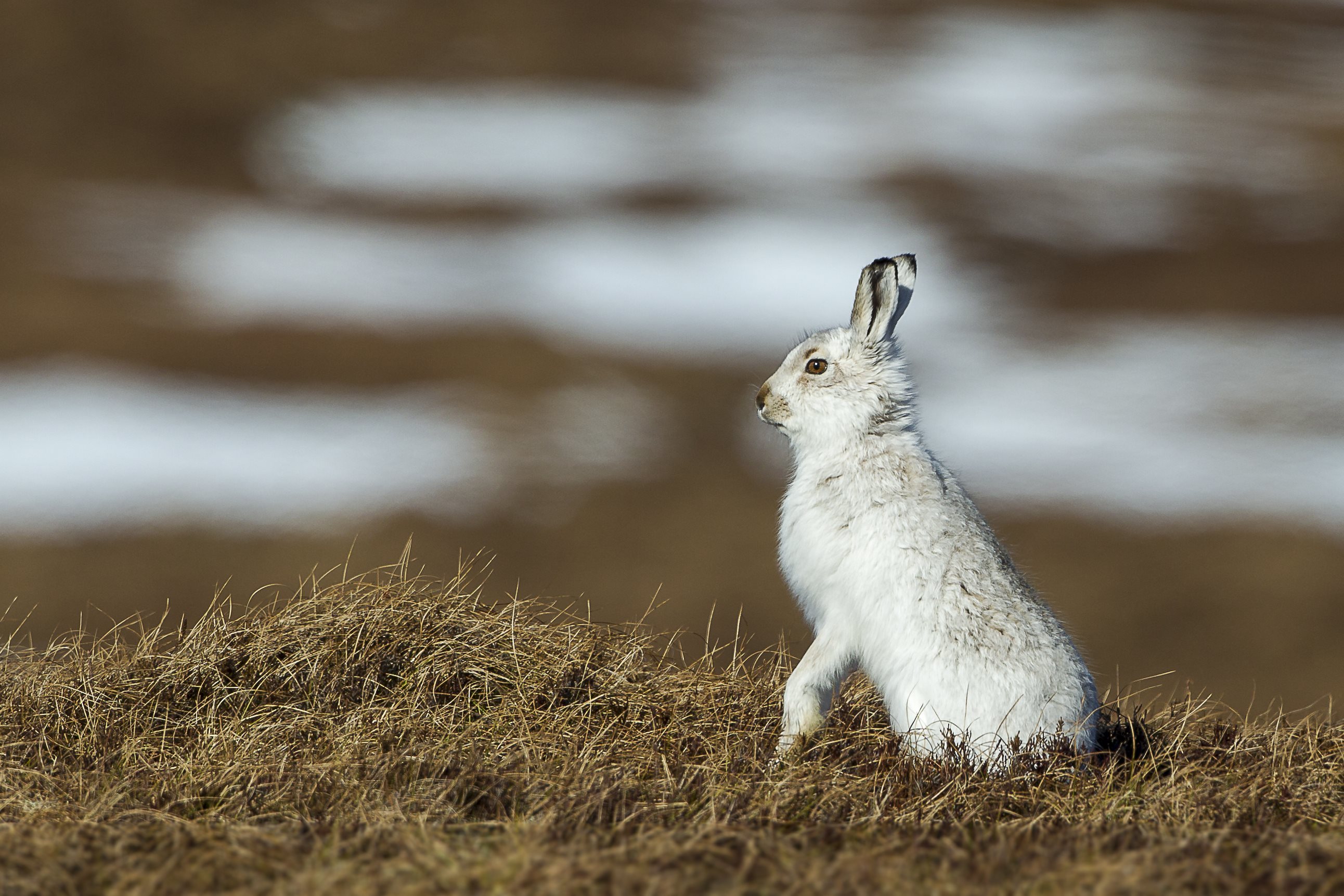There have been urgent calls for an immediate halt to mountain hare culls after a new report revealed an alarming decline in their population.
Mountain hares are an important source of prey for golden eagles, one of Scotland’s most iconic birds.
But new data published by the EU on the condition of protected species and habitats in Scotland suggests the country’s mountain hare populations have experienced a major decline.
As a result, the status of the mountain hare has been downgraded to ‘unfavourable’, meaning that special conservation action needs to be undertaken to arrest further declines and aid their recovery.
The Game and Wildlife Conservation Trust has questioned the report’s findings, suggesting they vastly under-represent numbers in some areas and identifying grouse shooting estates within the north-east as key strongholds for hares.
RSPB Scotland, however, has said it is “extremely concerned” and bosses have demanded urgent action.
The organisation has lobbied for many years to improve the protection for mountain hares in Scotland, calling for a moratorium in 2015 on unregulated culling.
Since then, new evidence has shown the species has declined by more than 90% in some sites managed for driven grouse shooting, in spite of claims from the shooting industry that numbers remain healthy.
Duncan Orr-Ewing, head of species and land management at RSPB Scotland, said: “In the last 12 months new, robust evidence has shown that populations have declined precipitously, chiefly in areas managed for driven grouse shooting.
“This reclassification to unfavourable status demands urgent action.
“Self-regulation and claimed ‘voluntary restraint’ from culling by the industry has been nothing short of a pitiful failure.
“We urge the Scottish government to take action where the industry has not and to urgently increase the protection of mountain hares in Scotland until their status is secured.”
Scottish Greens MSP Alison Johnstone is currently consulting on a bill to bring greater protection to hares in Scotland.
She said: “This alarming report show just how urgently we need to protect mountain hares, an iconic animal and an important part of the food chain. This killing must stop.”
The GWCT, however, said there was no clear evidence that grouse shooting was to blame for declining numbers.
A spokesman said: “It is the natural variability of mountain hare numbers and the absence of a national mountain hare count, rather than any clear evidence of major declines resulting from hunting, that has led to the change of status for mountain hares in the report.
“The GWCT has found robust mountain hare numbers using Scottish Natural Heritage-approved count methods close to sites that the report to which the RSPB refers states as having zero hare abundance.
“Moreover, research from GWCT published in 2019 demonstrates that mountain hares are most widespread in north-eastern Scotland on managed grouse moors, where their numbers can be up to 35 times higher than areas where grouse are not shot.”
